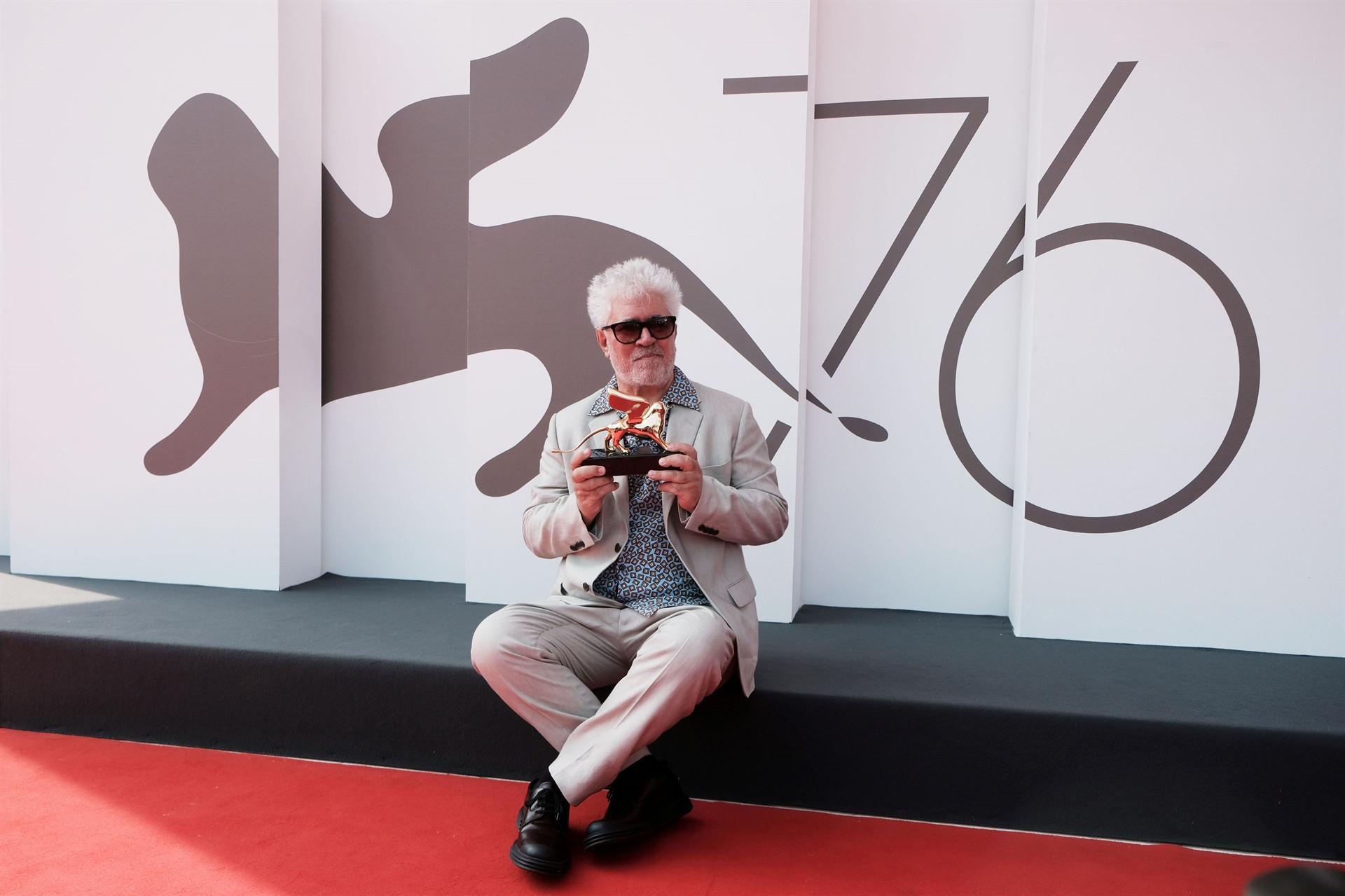
Legendary Spanish director Pedro Almodovar won the Golden Lion lifetime achievement award at the Venice Film Festival Aug. 29, calling the recognition an "act of poetic justice."
Event organizers said Almodovar was the "greatest and most influential Spanish director since Luis Bunuel."
It is the first time Almodovar has received an award from a top European festival such as Cannes and Venice.
Almodovar has directed 21 feature films, including "Volver," "Tie Me Up! Tie Me Down!" and "High Heels."
Almodovar screened his first film in Venice in 1983 but it was his second inclusion at the festival in 1998, with "Women on the verge of a nervous breakdown" that provoked controversy when the jury president suggested it was not sufficiently serious. "Thirty years later, I am awarded the Golden Lion... It is an act of poetic justice," Almodovar said during a press conference before the award was presented.
The film, which portrays the interwoven stories of four women who have lost their minds, rose to international acclaim with its colourful costumes and visual splendor.
The 69-year-old director said Spain "was waking up from a dictatorship that had lasted 40 years" and that the most important part of the artistic movement following the Franco dictatorship was to enjoy freedom.
The Italian media dubbed him the "wounded lion" after he received his award, which comes in addition to two Oscars he picked up for the melodramas "All about my mother" and "Talk to her."
The director, known for his disenchanted and corrosive films which have evolved into a more introspective cinema, has called himself "the product of Spanish democracy."
Almodovar said he wanted to portray "all diversity" in his films, such as homosexuality, masochism, drugs, pornography, religion and anti-clericalism.
As for the colors used in his films, Almodovar said his inspiration comes from his homeland, La Mancha, in the center of Spain. It is a region "extremely conservative, Calvinist, where we see little colour, very arid, the opposite of what I felt in me," the director said.
He does not remember seeing red in his childhood, he said, "only the black of mourning."